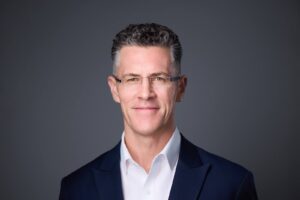Parenting as Leadership Cycles of Learning, Unlearning and Relearning By Samson Stevens
While statistics vary, it’s said that approximately 80% of the time you spend with your children is over by the time they’re 18. As we sent our twins off to their first year in college, I’ve been thinking about the changing approaches to parenting during our children’s time in our homes and then into adulthood. I’ve also been contemplating the cycles of learning, unlearning, and relearning that we must undertake through life, leadership, and parenting.
The past two months have been a whirlwind—concluding my service with the Coast Guard, celebrating our twins’ graduation from high school, coaching and parenting through their preparations for move-in and convocation at their Virginia colleges, and adapting from a household of five to three with our high school senior. Looking back, if my present-day self could time-travel to meet my new-dad self 18 years ago, I’d offer this advice: be more intentional about the year-to-year changes in parenting, and seek more feedback as a two-way exchange between us (my wife and me) and them (our children).
This clarity came into focus just a couple weeks ago when my wife and I took our three children to dinner to commemorate the last time we’d technically be the “under-the-same-roof” family that began 18 years ago. Attempting to extend this special dinner as long as possible, I proposed a round of reflective questions:
How would you characterize your relationship with your parents? Would you like it to be different?
What would your present-day self tell your younger self? Would your younger self recognize your older self?
What is your relationship with your siblings?
Our children reciprocated the reflection and directed the following to us:
How would you describe your relationship with your children?
Do you think your 18-year self would relate to, or be friends with us (your three kids)?
Talk about a vulnerable conversation and real heart-to-heart sharing—it struck me that this was the kind of meaningful discussion we should have had at multiple stages throughout their lives. This would have allowed us to learn as a family, using the conversations as feedback to reinforce positive trends or perhaps alter course on elements that could be improved.
For me, the answers were revealing, sometimes a bit raw, and emotionally challenging as I accepted feedback about who I was and the kind of father I was…and had been. It made me realize that the journey of parenting is probably one of the most complex and dynamic relationships with other humans you could have, yet we often go about our routines, allowing the tyranny of urgent and mundane to drown out the significant growth curves that both parties experience. I’ve often thought of life’s degrees this way: moving out of one’s parents’ house to become independent earns you a Bachelor’s, sustaining a relationship with a partner earns you a Master’s, raising children is a lifelong Doctorate. These “PhDs” are complex, humbling, lifelong, and require a constant cycle of learning, unlearning, and relearning.
As new parents, we learned to rely on our knowledge and understanding of “the right answer” to guide us as parents:
Don’t cross the street without looking, or you could get hurt.
Eat nutritious foods to help your body grow!
Treat your brother and sister kindly and say sorry because these are the values we espouse as courteous and respectful human beings.
Keep an open mind and stay curious about new ideas, people of different backgrounds, and even thoughts that are opposite of yours—it is a recipe for being a better person.
Work hard at school to do your best because each subject provides a basis for knowledge you’ll rely upon in the future.
But somewhere along the early high school years, we suddenly realized that “what got us here, wouldn’t get us there.” The all-knowing parent faced the all-knowing teenager, and it was a real exercise in patience and discipline to learn how to listen to the viewpoints and opinions of our teenagers, especially when they would deliberately test our positions and values. No longer could we say our choice of politics was the right one, our positions on social issues challenging our society today were the correct ones, or that the path to adult success was fixed along well-worn paths.
We were surprised at how quickly the “all-knowing parent” paradigm stopped working—often leading to heated arguments or to teenagers tuning us out entirely. As our kids grew into the independent thinkers we wanted them to be, we realized that we needed to unlearn and relearn what argument sounded and looked like. As opposed to the earlier years where we argued to “win” using our knowledge, experience, and evidence, we recognized staying on this same path would only teach our kids that argument was only about victory, not growth.
This new kind of argument required us to open our minds, no matter how controversial or provocative the subject, and “stay curious” by inquiring, positing, questioning, conceding, disagreeing agreeably, and leaving what felt like a problem to be solved…unsolved and open. In other words, we had to unlearn how to parent with knowledge and information, and relearn how to parent with curiosity and coaching, setting them up for the independent lives they were destined to have. This required years of work and especially devoted work with my spouse, as we coached each other how to unlearn parenting children and relearn how to parent young men and women.
Of course, it’s easy to write and talk about this, but applying it remains a challenge every day. Most recently, on the day of our twins’ high school graduation, our son told us he no longer believed college would help him achieve his goals in music production, nor was it the guaranteed path to adult success. (He’s intelligent, and he is not wrong as we’ve seen the trends in employment and success over the years).
It took all the strength I had not to revert to the “knowing parent” paradigm by confronting his decision with evidence, data, and parental knowledge. (I have my spouse to thank for this, who has been an indispensable ally in all our parenting challenges). With my wife’s strong recommendation, we purposely disengaged from our son and told him that we’d talk in a week once we had discussed it together. We scheduled a “business meeting” with him a week later designed to ask him questions to better understand his position and goals. My wife and I sat down with a notepad and inquired about his plan: where he’d live, how he’d earn money, how he defined his future success, what his back-up plans were, etc. We intentionally took notes but resisted engaging, debating, or arguing. We thanked him for his time and told him we’d have a decision for him in a week.
We recognized simply giving up on parenting was not an option, and we clearly saw the stark contrast between parenting a young adult versus a 5-year-old. However, my wife and I created the framework for a plan, and a week later, we delivered it to him:
We’d like you to attend college for a semester.
We are open to modifying your degree and coursework.
We believe the experience with other students in a new area will broaden your perspective.
We trust you to apply effort to your coursework.
At Thanksgiving, we will revisit this discussion and hear your feeback about the experience and which direction you’d like to go.
He listened intently as we spoke, and when I concluded and asked him what questions he had, he thought for several moments. My wife and I were both expecting further pushback, but to our surprise, he said he understood, found everything reasonable, and was ready to proceed.
I believe that while we delivered a firm decision, the entire process was based on the coaching form of parenting we continue to strive toward. By allowing him to state his position and intent, followed up with our detailed questions and inquiries about his plan, and concluding with measured flexibility and agency, I’d like to think we engendered continued communication and trust. And at the end of the day, communication and trust are the foundation we want to preserve.
This experience epitomized the gradual shift in parenting we’d needed to implement as our teenagers navigated high school—gently tightening and relaxing consequences as we worked to uphold trust and communication at all costs. The stakes starkly change from the dangers of sharp knives, hot stoves, and busy intersections to substance abuse, reckless driving, unprotected sex, respectful relationships, money management…and so much more.
As we age and become more crystallized in our knowledge patterns, our children accelerate in mental development and capability, testing independence of thought, idea, and worldview. At that point, conversations can no longer be about one side being right and the other wrong. Teaching children that the outcome of a conversation should not be about who wins an argument, but how both can give and take on different viewpoints and perspectives, hopefully leaves them with the communications and relationship skills for adult success. And perhaps repeated over time and across families, this approach may even contribute to broader civil discourse and a tolerant society.
As we return to school this year, what parenting stage are you in? What legacy skills and techniques do you need to retire in order to foster your children’s growth and independence—helping them leave home and thrive by being resourceful, asking questions, and learning in new environments? What styles and approaches do you need to unlearn and what do you need to relearn about parenting as you step into a new school year? ❦
 About the Author
About the Author
Samson recently transitioned to his current role as the Director of Federal Government Affairs for The Port of Virginia, where he will be leading the port’s federal engagement strategy and representing its national-level policy positions. He previously served a 30-year career in the U.S. Coast Guard, culminating as Senior Intelligence Officer for U.S. Coast Guard Atlantic Area and as Captain of the Port of Virginia. His leadership experience spans organizational transformation, maritime operations, crisis response, and interagency strategy at the highest levels of government.
A graduate of the U.S. Coast Guard Academy, Samson holds advanced degrees from the University of Michigan and the U.S. Naval War College, has completed intelligence studies at the National Intelligence University, is a graduate of the Naval Postgraduate School Center for Homeland Defense and Security Executive Leaders Program, and is a published author in U.S. Naval Institute Proceedings.
